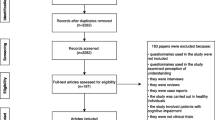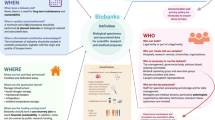Abstract
The impact of returning secondary results from exome sequencing (ES) on patients/participants is important to understand as ES is increasingly utilized in clinical care and research. Participants were recruited from studies using ES and were separated into two arms: 107 who had ES and were offered the choice to learn secondary results (ES group) and 85 who had not yet had ES (No ES group). Questionnaires were administered at baseline and 1 and 12 months, following results disclosure (ES group) or enrollment (No ES group). While the majority (65%) elected to learn all results following pre-test counseling, it was reduced from the 76% who indicated a desire for all results at baseline. Thirty-seven percent received results associated with an increased personal disease risk. There were no differences in changes in any of the psychological and social measures from baseline to post-results disclosure between the ES and No ES groups. Receiving a wide range of secondary findings appeared to have little measurable impact on most participants. The experience of learning secondary results may be related to participants’ previous experiences with genetics, as well as the genetic counseling provided. Future research with a more diverse, genetically naïve group, as well as scalable methods of delivery, is needed.




Similar content being viewed by others
References
Adzhubei, I. A., Schmidt, S., Peshkin, L., Ramensky, V. E., Gerasimova, A., Bork, P., et al. (2010). A method and server for predicting damaging missense mutations. Nature Methods, 7(4), 248–249. https://doi.org/10.1038/nmeth0410-248.
Amendola, L. M., Lautenbach, D., Scollon, S., Bernhardt, B., Biswas, S., East, K., et al. (2015). Illustrative case studies in the return of exome and genome sequencing results. Personalized Medicine, 12(3), 283–295. https://doi.org/10.2217/pme.14.89.
Bennette, C. S., Trinidad, S. B., Fullerton, S. M., Patrick, D., Amendola, L., Burke, W., et al. (2013). Return of incidental findings in genomic medicine: Measuring what patients value--development of an instrument to measure preferences for information from next-generation testing (IMPRINT). Genetics in Medicine, 15(11), 873–881. https://doi.org/10.1038/gim.2013.63.
Biesecker, L. G., Burke, W., Kohane, I., Plon, S. E., & Zimmern, R. (2012). Next-generation sequencing in the clinic: Are we ready? Nature Reviews. Genetics, 13(11), 818–824. https://doi.org/10.1038/nrg3357.
Bollinger, J. M., Scott, J., Dvoskin, R., & Kaufman, D. (2012). Public preferences regarding the return of individual genetic research results: Findings from a qualitative focus group study. Genetics in Medicine, 14(4), 451–457. https://doi.org/10.1038/gim.2011.66.
Bosch, N., Junyent, N., Gadea, N., Brunet, J., Ramon y Cajal, T., Torres, A., et al. (2012). What factors may influence psychological well being at three months and one year post BRCA genetic result disclosure? Breast, 21(6), 755–760. https://doi.org/10.1016/j.breast.2012.02.004.
Carver, C. S., & Scheier, M. F. (1989). Assessing coping strategies: A theoretically based approach. Journal of Personality and Social Psychology, 56(2), 267–283.
Cella, D., Hughes, C., Peterman, A., Chang, C. H., Peshkin, B. N., Schwartz, M. D., et al. (2002). A brief assessment of concerns associated with genetic testing for cancer: The multidimensional impact of cancer risk assessment (MICRA) questionnaire. Health Psychology, 21(6), 564–572.
Clarke, A. J. (2014). Managing the ethical challenges of next-generation sequencing in genomic medicine. British Medical Bulletin, 111(1), 17–30. https://doi.org/10.1093/bmb/ldu017.
Cooper, C., Katona, C., Orrell, M., & Livingston, G. (2006). Coping strategies and anxiety in caregivers of people with Alzheimer's disease: The LASER-AD study. Journal of Affective Disorders, 90(1), 15–20. https://doi.org/10.1016/j.jad.2005.08.017.
Davydov, E. V., Goode, D. L., Sirota, M., Cooper, G. M., Sidow, A., & Batzoglou, S. (2010). Identifying a high fraction of the human genome to be under selective constraint using GERP++. PLoS Computational Biology, 6(12), e1001025. https://doi.org/10.1371/journal.pcbi.1001025.
Erblich, J., Brown, K., Kim, Y., Valdimarsdottir, H. B., Livingston, B. E., & Bovbjerg, D. H. (2005). Development and validation of a breast cancer genetic counseling knowledge questionnaire. Patient Education and Counseling, 56(2), 182–191. https://doi.org/10.1016/j.pec.2004.02.007.
Fernandez, C. V., Bouffet, E., Malkin, D., Jabado, N., O'Connell, C., Avard, D., et al. (2014). Attitudes of parents toward the return of targeted and incidental genomic research findings in children. Genetics in Medicine, 16(8), 633–640. https://doi.org/10.1038/gim.2013.201.
Gech, A., Epstein, N., Brown, G., & Steer, R. (1988). An inventory for measuring clinical anxiety: Psychometric properties. Jouranl of Consulting and Clinical. Psychology, 56, 5.
Green, R. C., Berg, J. S., Berry, G. T., Biesecker, L. G., Dimmock, D. P., Evans, J. P., et al. (2012). Exploring concordance and discordance for return of incidental findings from clinical sequencing. Genetics in Medicine, 14(4), 405–410. https://doi.org/10.1038/gim.2012.21.
Green, R. C., Berg, J. S., Grody, W. W., Kalia, S. S., Korf, B. R., Martin, C. L., et al. (2013a). ACMG recommendations for reporting of incidental findings in clinical exome and genome sequencing. Genetics in Medicine, 15(7), 565–574. https://doi.org/10.1038/gim.2013.73.
Green, R. C., Lupski, J. R., & Biesecker, L. G. (2013b). Reporting genomic sequencing results to ordering clinicians: Incidental, but not exceptional. JAMA, 310(4), 365–366. https://doi.org/10.1001/jama.2013.41703.
Jarvik, G. P., Amendola, L. M., Berg, J. S., Brothers, K., Clayton, E. W., Chung, W., et al. (2014). Return of genomic results to research participants: The floor, the ceiling, and the choices in between. American Journal of Human Genetics, 94(6), 818–826. https://doi.org/10.1016/j.ajhg.2014.04.009.
Kalia, S. S., Adelman, K., Bale, S. J., Chung, W. K., Eng, C., Evans, J. P., et al. (2017). Recommendations for reporting of secondary findings in clinical exome and genome sequencing, 2016 update (ACMG SF v2.0): A policy statement of the American College of Medical Genetics and Genomics. Genetics in Medicine, 19(2), 249–255. https://doi.org/10.1038/gim.2016.190.
Kessler, R. C., Chiu, W. T., Demler, O., Merikangas, K. R., & Walters, E. E. (2005). Prevalence, severity, and comorbidity of 12-month DSM-IV disorders in the National Comorbidity Survey Replication. Archives of General Psychiatry, 62(6), 617–627. https://doi.org/10.1001/archpsyc.62.6.617.
Kircher, M., Witten, D. M., Jain, P., O'Roak, B. J., Cooper, G. M., & Shendure, J. (2014). A general framework for estimating the relative pathogenicity of human genetic variants. Nature Genetics, 46(3), 310–315. https://doi.org/10.1038/ng.2892.
Klitzman, R., Appelbaum, P. S., & Chung, W. (2013a). Return of secondary genomic findings vs patient autonomy: Implications for medical care. JAMA, 310(4), 369–370. https://doi.org/10.1001/jama.2013.41709.
Klitzman, R., Appelbaum, P. S., Fyer, A., Martinez, J., Buquez, B., Wynn, J., et al. (2013b). Researchers' views on return of incidental genomic research results: Qualitative and quantitative findings. Genetics in Medicine, 15(11), 888–895. https://doi.org/10.1038/gim.2013.87.
Krabbenborg, L., Vissers, L. E., Schieving, J., Kleefstra, T., Kamsteeg, E. J., Veltman, J. A.,... Van der Burg, S. (2016). Understanding the psychosocial effects of WES test results on parents of children with rare diseases. Journal of Genetic Counseling, 25(6), 1207–1214. https://doi.org/10.1007/s10897-016-9958-5.
Kumar, P., Henikoff, S., & Ng, P. C. (2009). Predicting the effects of coding non-synonymous variants on protein function using the SIFT algorithm. Nature Protocols, 4(7), 1073–1081. https://doi.org/10.1038/nprot.2009.86.
Lee, K. A., Hicks, G., & Nino-Murcia, G. (1991). Validity and reliability of a scale to assess fatigue. Psychiatry Research, 36(3), 291–298.
Lewis, K. L., Hooker, G. W., Connors, P. D., Hyams, T. C., Wright, M. F., Caldwell, S., et al. (2016). Participant use and communication of findings from exome sequencing: A mixed-methods study. Genetics in Medicine, 18(6), 577–583. https://doi.org/10.1038/gim.2015.133.
Li, H., & Durbin, R. (2009). Fast and accurate short read alignment with burrows-wheeler transform. Bioinformatics, 25(14), 1754–1760. https://doi.org/10.1093/bioinformatics/btp324.
Lumish, H. S., Steinfeld, H., Koval, C., Russo, D., Levinson, E., Wynn, J., et al. (2017). Impact of panel gene testing for hereditary breast and ovarian cancer on patients. Journal of Genetic Counseling. https://doi.org/10.1007/s10897-017-0090-y.
R Core Development Team. (2010). R: A language and environment for statistical computing. Vienna, Austria: R Foundation for Statistical Computing. Retrieved from http://www.R-project.org
Regier, D. A., Peacock, S. J., Pataky, R., van der Hoek, K., Jarvik, G. P., Hoch, J., & Veenstra, D. (2015). Societal preferences for the return of incidental findings from clinical genomic sequencing: A discrete-choice experiment. CMAJ, 187(6), E190–E197. https://doi.org/10.1503/cmaj.140697.
Ropka, M. E., Wenzel, J., Phillips, E. K., Siadaty, M., & Philbrick, J. T. (2006). Uptake rates for breast cancer genetic testing: A systematic review. Cancer Epidemiology, Biomarkers & Prevention, 15(5), 840–855. https://doi.org/10.1158/1055-9965.epi-05-0002.
Rosell, A. M., Pena, L. D., Schoch, K., Spillmann, R., Sullivan, J., Hooper, S. R., et al. (2016). Not the end of the odyssey: Parental perceptions of whole exome sequencing (WES) in pediatric undiagnosed disorders. Journal of Genetic Counseling, 25(5), 1019–1031. https://doi.org/10.1007/s10897-016-9933-1.
Sanderson, S., O’Neill, S., Bastian, L., Bepler, G., & McBride, C. (2009). What can interest tell us about uptake of genetic testing? Intention and behavior amongst smokers related to patients with lung cancer. Public Health Genomics, 13(2), 116–124. https://doi.org/10.1159/000226595.
Sanderson, S. C., Linderman, M. D., Suckiel, S. A., Zinberg, R., Wasserstein, M., Kasarskis, A., et al. (2017). Psychological and behavioural impact of returning personal results from whole-genome sequencing: The HealthSeq project. European Journal of Human Genetics, 25(3), 280–292. https://doi.org/10.1038/ejhg.2016.178.
SAS Institute Inc. SAS 9.4 [computer program]. (2014). Cary, NC: SAS Institute Inc.
Sawyer, S. M., Cerritelli, B., Carter, L. S., Cooke, M., Glazner, J. A., & Massie, J. (2006). Changing their minds with time: A comparison of hypothetical and actual reproductive behaviors in parents of children with cystic fibrosis. Pediatrics, 118(3), e649–e656. https://doi.org/10.1542/peds.2005-2551.
Spitzer, R. L., Kroenke, K., & Williams, J. B. (1999). Validation and utility of a self-report version of PRIME-MD: The PHQ primary care study. Primary care evaluation of mental disorders. Patient health questionnaire. JAMA, 282(18), 1737–1744.
Townsend, A., Adam, S., Birch, P. H., Lohn, Z., Rousseau, F., & Friedman, J. M. (2012). I want to know what's in Pandora's Box: comparing stakeholder perspectives on incidental findings in clinical whole genomic sequencing. American Journal of Medical Genetics. Part A, 158a(10), 2519–2525. https://doi.org/10.1002/ajmg.a.35554.
Wallston, B. S., Wallston, K. A., Kaplan, G. D., & Maides, S. A. (1976). Development and validation of the health locus of control (HLC) scale. Journal of Consulting and Clinical Psychology, 44(4), 580–585.
Wang, K., Li, M., & Hakonarson, H. (2010). ANNOVAR: Functional annotation of genetic variants from high-throughput sequencing data. Nucleic Acids Research, 38(16), e164. https://doi.org/10.1093/nar/gkq603.
Wilfond, B. S., Fernandez, C. V., & Green, R. C. (2015). Disclosing secondary findings from pediatric sequencing to families: Considering the "benefit to families". The Journal of Law, Medicine & Ethics, 43(3), 552–558. https://doi.org/10.1111/jlme.12298.
Wills, C. E., & Holmes-Rovner, M. (2003). Preliminary validation of the satisfaction with decision scale with depressed primary care patients. Health Expectations, 6(2), 149–159.
Wolf, S. M., Crock, B. N., Van Ness, B., Lawrenz, F., Kahn, J. P., Beskow, L. M.,... Wolf, W. A. (2012). Managing incidental findings and research results in genomic research involving biobanks and archived data sets. Genetics in Medicine, 14(4), 361–384. https://doi.org/10.1038/gim.2012.23.
Wynn, J., Martinez, J., Duong, J., Zhang, Y., Phelan, J., Fyer, A., et al. (2015). Association of Researcher Characteristics with views on return of incidental findings from genomic research. Journal of Genetic Counseling. https://doi.org/10.1007/s10897-014-9817-1.
Wynn, J., Martinez, J., Duong, J., Chiuzan, C., Phelan, J. C., Fyer, A., et al. (2016). Research participants' preferences for hypothetical secondary results from genomic research. Journal of Genetic Counseling. https://doi.org/10.1007/s10897-016-0059-2.
Yu, J. H., Jamal, S. M., Tabor, H. K., & Bamshad, M. J. (2013). Self-guided management of exome and whole-genome sequencing results: Changing the results return model. Genetics in Medicine, 15(9), 684–690. https://doi.org/10.1038/gim.2013.35.
Yushak, M. L., Han, G., Bouberhan, S., Epstein, L., DiGiovanna, M. P., Mougalian, S. S., et al. (2016). Patient preferences regarding incidental genomic findings discovered during tumor profiling. Cancer, 122(10), 1588–1597. https://doi.org/10.1002/cncr.29951.
Author information
Authors and Affiliations
Corresponding author
Ethics declarations
Conflict of Interest
Julia Wynn, Josue Martinez, Jessica Bulafka, Jimmy Duong, Yuan Zheng, Codruta Chiuzan, Preti Jain, Maria L Cremona, Vaidehi Jobanputra, Abby J Fyer, Robert L Klitzman, Paul S Appelbaum, and Wendy K. Chung have no conflict of interests.
Human Studies and Informed Consent
All procedures followed were in accordance with the ethical standards of the responsible committee on human experimentation (institutional and nation) and with the Helsinski Declaration of 1975, as revised in 2000. Informed consent was obtained from all patients for being included in the study.
Animal Studies
No animal studies were carried out by the authors for this article.
Rights and permissions
About this article
Cite this article
Wynn, J., Martinez, J., Bulafka, J. et al. Impact of Receiving Secondary Results from Genomic Research: A 12-Month Longitudinal Study. J Genet Counsel 27, 709–722 (2018). https://doi.org/10.1007/s10897-017-0172-x
Received:
Accepted:
Published:
Issue Date:
DOI: https://doi.org/10.1007/s10897-017-0172-x




